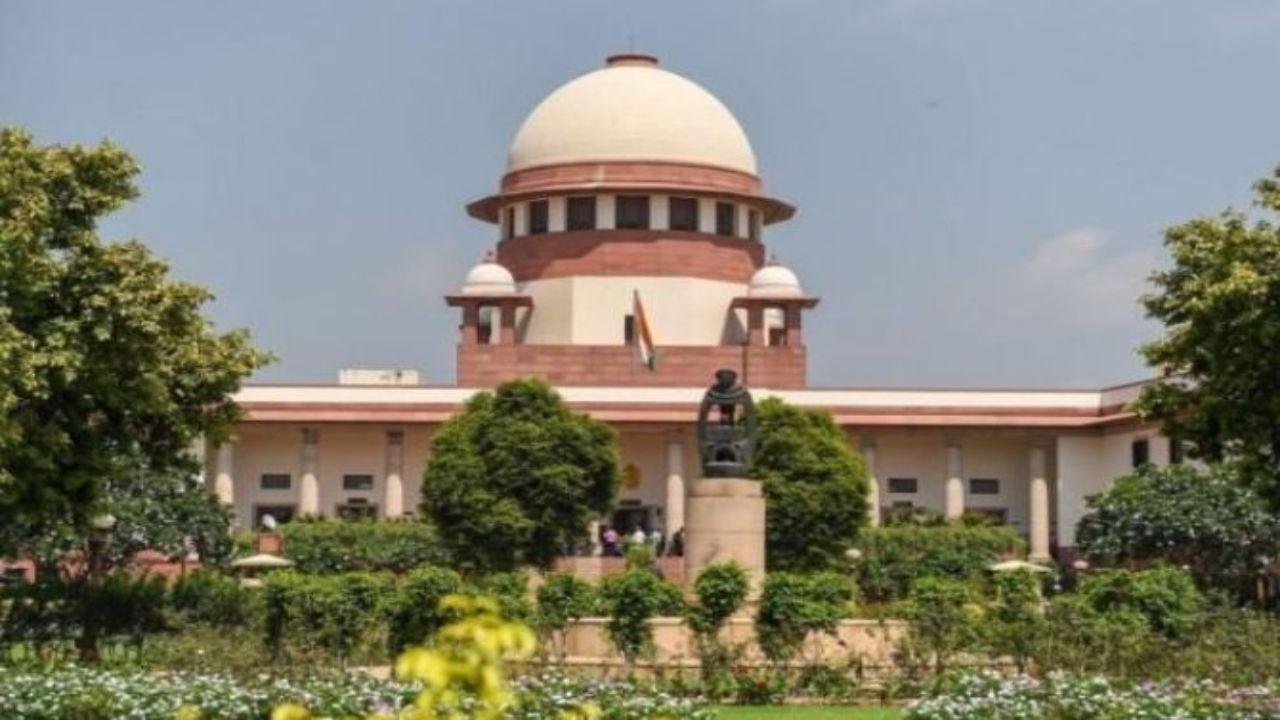A bench of Justices Ashok Bhushan and R Subhash Reddy made the observation while setting aside the conviction of an auto driver in Telangana who had kidnapped a minor and demanded a ransom of Rs 2 lakh from his father

Supreme Court of India. File Pic
If an abducted person is not assaulted or threatened to be killed and treated well, then the kidnapper cannot be sentenced to life imprisonment under Section 364A of Indian Penal Code, the Supreme Court has said.
ADVERTISEMENT
A bench of Justices Ashok Bhushan and R Subhash Reddy made the observation while setting aside the conviction of an auto driver in Telangana who had kidnapped a minor and demanded a ransom of Rs 2 lakh from his father.
The top court said that there are three essential ingredients to convict an accused under Section 364A (kidnapping for ransom) which need to be proved by prosecution.
Also Read: Thane: MP man held for kidnapping 14-year-old girl
It said the three essential ingredients are -- kidnapping or abduction of any person or keeping him in detention; threatening to cause death or hurt to such person, or the kidnapper's conduct gives rise to a reasonable apprehension that victim may be put to death or hurt in order to compel the Government, foreign State or any Governmental organization or any other person to pay a ransom.
Referring to the punishment of life or death sentence provided for convictions under Section 364A, the top court said, "In addition to the first condition either condition (ii) or (iii) has to be proved, failing which conviction under Section 364A cannot be sustained."
The top court was hearing an appeal filed by Telangana resident Shaik Ahmed challenging a high court order. The high court had dismissed his plea against conviction and sentence of life imprisonment under section 364 A of the IPC.
Ahmed, an auto driver had kidnapped a Class 6 student of St Mary's High School on the pretext of dropping him home. The child was rescued by police when his father went to pay the ransom.
The child, who was 13 years old at the time of incident in 2011, and his father had told the lower court that Ahmed never threatened to kill or harm the boy.
The top court set aside the conviction under section 364 A of the IPC.
“From the evidence on record regarding kidnapping, it is proved that accused had kidnapped the victim for ransom, demand of ransom was also proved. Even though offence under Section 364A has not been proved beyond reasonable doubt but the offence of kidnapping has been fully established to which effect the learned Sessions Judge has recorded a categorical finding.
“The offence of kidnapping having been proved, the appellant deserves to be convicted under Section 363(Punishment for kidnapping). Section 363 provides for punishment which is imprisonment of either description for a term which may extend to seven years and shall also be liable to fine,” the bench said.
The apex court said that it is satisfied that the appellant deserves to be sentenced with imprisonment of seven years and also liable to pay fine of Rs 5,000.
This story has been sourced from a third party syndicated feed, agencies. Mid-day accepts no responsibility or liability for its dependability, trustworthiness, reliability and data of the text. Mid-day management/mid-day.com reserves the sole right to alter, delete or remove (without notice) the content in its absolute discretion for any reason whatsoever.
 Subscribe today by clicking the link and stay updated with the latest news!" Click here!
Subscribe today by clicking the link and stay updated with the latest news!" Click here!







